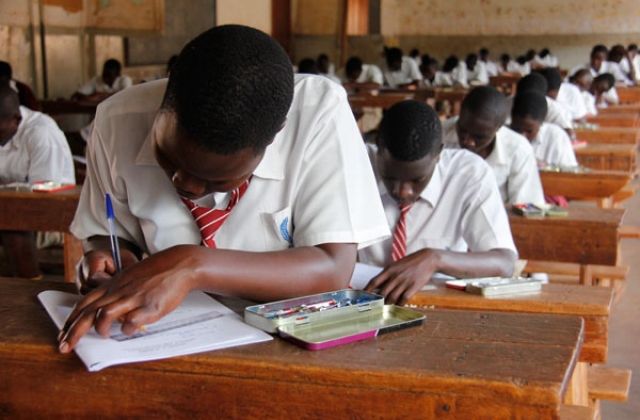Once again Nigerian students have just completed their Secondary School leaving West African School Certificate (WAEC) examination and as usual the number of candidates caught cheating has increased! Those who are caught tend to be those trying out their personally designed cheating method. Those who are hardly ever caught are candidates who have invested in the seemingly fool-proof exam-malpractice industry. In Nigeria there is a clear distinction between cheating and malpractice. Although examination malpractice is defined as “academic dishonesty or academic fraud which involves any kind of cheating in the examination hall”, in Nigeria cheating is something done by an individual candidate. It comprises smuggling in notes, copying from other students and such mundane efforts to improve scores.
Exam malpractice is a different matter altogether. It’s a highly organized “industry”; which is a conspiracy between school proprietors, officials of the State Ministry of Education, officials of WAEC, examination invigilators, machineries (those who provide the answers) and the students themselves. In the colonial days and indeed up until the 1960’s the pursuit of genuine educational qualifications was the main ambition of the majority of Nigerian youths. These days, not surprisingly given the dire economic and security challenges facing the nation, their main ambition is to either acquire extra-ordinary wealth, or to get out of the country and seek better prospects for a better life elsewhere.
Back in the day genuine educational qualifications were a sure guarantee to a comfortable life in Nigeria. In those days the national currency had value, there was running tap water, almost constant electricity for those who were connected to the national grid, and there was hope for the future. Back then there was little focus on accumulating wealth. The biggest concern was to live healthy life and maintain a healthy reputation. Regrettably in present day Nigeria the pursuit of extraordinary wealth has become the prime motivator in life. It’s become so because the virtual collapse of all government social services and the absence of any sort of social security safety net means that extra-ordinary wealth is the only way of ensuring comfort, satisfaction, pleasure, peace of mind and proper medical treatment.
In the pre-military days before things were messed up by those who knew no better, the Nigerian educational system enjoyed a golden era in which our schools were known as centers for academic excellence and our universities were renowned as centers of scientific and literary research. Those days education was a route to prosperity. These days the need and desire to achieve extra-ordinary wealth quickly motivates youths to disregard all constraints. Wealth is both an intoxicant and depressant. The wealthy in Nigeria are intoxicated and admired for obscene displays of wealth. Rich criminals live in highbrow areas and are guarded by a plethora of armed policemen while the ghetto poor are depressed, paraded as “suspects” and suffer all forms of human degradation.
It’s become so bad that in Nigeria it’s an insult to be called a “poor man”! In their quest to earn respect and live a decent life by accumulating extra-ordinary wealth, Nigerian youths refuse to accept the limitations of their natural endowments, capacity and talents. Our young “leaders of tomorrow” place little premium on reading simply because their leaders and many of those prospering are not well read. A recent study concluded that examination malpractice in Nigeria is a result of general corruption within the nation, poor implementation of examination rules, no fear of punishment, inadequate preparation for the exams, poor invigilation, disloyalty of examination body staff and students and parental threats. Corruption is one of the biggest problems nationwide and the educational system suffers from it too. The anti-corruption war seems overwhelmingly focused on political corruption ignoring the other forms which really set society back. Many parents prefer to bribe the examiner rather than pay for extra lessons for their child which may still not result in examination success.
At the end of the day students who try to pass their exams honestly and don’t succeed look foolish when compared to complete dunces who have paid the requisite fees and obtained the necessary credits! The Examination Malpractices Act 1999 exists to deal with candidates caught cheating as well as impersonators, invigilators, agents, principals, or schools who assist in malpractice. Despite this law and the fact that exam malpractice is a criminal offence it continues unabated. Back in the day Degrees from Nigerian Universities were recognized internationally and products from Nigerian Secondary Schools always excelled when placed alongside their counterparts from other nations.
Nowadays due to the acknowledged widespread exam malpractice Nigerian academic certificates are practically worthless. Various solutions have been suggested such as higher salaries for invigilators, properly trained teachers, guidance counselors and stricter security procedures in examination halls, but none of them is likely to work considering the genesis of the problem. The complaints about the quality of Nigerian school leavers are expected to continue and level of examination malpractice grow exponentially! There is no magic to improving the Nigerian educational system. What it will take is consistent policies, allocation of adequate resources and a sustained will to reverse the decay none of which are presently apparent so the situation continues.




